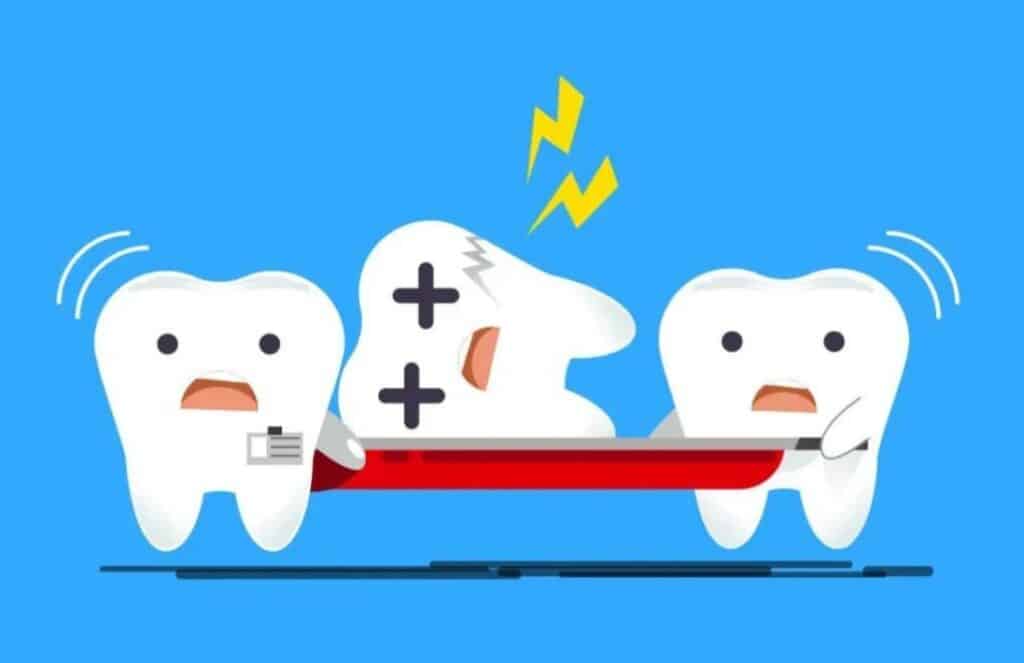Preventing Dental Emergencies: Habits That Could Save Your Teeth
Dental emergencies can happen without warning. A broken tooth, severe pain, or an infection can cause discomfort and require urgent care. Many emergencies can be avoided with simple daily habits. Following a few preventive steps can help protect teeth and reduce the risk of unexpected dental visits.
Daily Habits to Reduce Dental Emergencies
1. Brush and Floss Daily
Good oral hygiene is your first defense against dental problems. Plaque buildup leads to cavities and gum disease, both of which increase the risk of dental emergencies. Brushing twice a day with fluoride toothpaste helps remove food particles and bacteria, while flossing once daily cleans between teeth where a toothbrush cannot reach.
By sticking to a consistent routine, you can prevent decay, infections, and other conditions that may lead to emergency dental care.
2. Use a Mouthguard for Sports and Teeth Grinding
A sudden impact during sports or unconscious grinding at night can cause severe tooth damage.
- For sports: A mouthguard absorbs impact, protecting teeth from being chipped, broken, or knocked out. A custom-fitted mouthguard provides better protection than store-bought options.
- For grinding (bruxism): Many people grind their teeth while sleeping, which can wear down enamel and cause fractures. A nightguard helps prevent long-term damage by creating a barrier between the upper and lower teeth.
3. Avoid Using Teeth as Tools
It can be tempting to use your teeth to open a package or remove a bottle cap, but doing so can lead to chips or fractures. Teeth are meant for chewing food—not for cutting, tearing, or prying things open. Instead, reach for the proper tool to avoid unnecessary dental damage.
4. Be Cautious with Hard Foods
Some foods put excessive pressure on your teeth, increasing the risk of fractures.
Biting into hard substances like ice, unpopped popcorn kernels, or hard candies can lead to cracks or even complete breakage. While some damage may seem minor at first, even a small fracture can worsen over time, leading to painful complications. Chew cautiously and avoid overly hard foods when possible.
5. Watch for Signs of Infection
Ignoring minor discomfort in your teeth or gums can lead to serious infections.
A small cavity or mild gum inflammation may not seem urgent, but without treatment, these issues can develop into abscesses. Signs of an infection include:
- Swelling around the gums or face
- Persistent or throbbing pain
- Sensitivity to hot and cold foods
If you experience any of these symptoms, seek dental care promptly to prevent the condition from worsening.
Dietary and Lifestyle Factors That Help Protect Your Teeth
Limit Sugary and Acidic Foods
What you eat plays a major role in your oral health. Foods high in sugar or acid contribute to tooth decay and enamel erosion.
Soft drinks, citrus fruits, and sweets can weaken enamel, making teeth more vulnerable to cavities. Drinking water after consuming these foods helps rinse away sugar and acid, reducing their impact. Additionally, waiting at least 30 minutes before brushing after eating acidic foods prevents damage to softened enamel.
Stay Hydrated and Maintain Saliva Production
Saliva plays an important role in keeping your mouth healthy. It washes away food particles, neutralizes acids, and helps prevent dry mouth.
Dehydration or certain medications can reduce saliva production, increasing the risk of cavities and gum disease. Drinking plenty of water and chewing sugar-free gum can help stimulate saliva flow. If dry mouth persists, talk to your dentist about possible solutions.
Regular Dental Care to Prevent Emergencies
Maintain Routine Dental Checkups
Regular dental visits are key to catching minor issues before they become major problems.
A dentist can detect cavities, gum disease, and weakened teeth early, helping you avoid sudden pain or infections. Routine cleanings also remove plaque buildup, reducing the risk of decay. Preventive care not only protects your oral health but also helps you avoid costly emergency treatments.
Address Dental Issues Promptly
A small dental issue today can turn into an emergency if left untreated.
- A minor cavity can lead to an abscess if ignored.
- A loose filling or crown can cause a tooth to crack or break.
- Minor gum inflammation can progress into a serious infection.
Addressing dental concerns as soon as they arise helps prevent more significant problems down the line. If you notice any unusual pain or changes in your teeth or gums, schedule a dental visit right away.
What to Do in a Dental Emergency
Even with proper preventive care, accidents can still happen. Knowing how to respond can help minimize pain and improve treatment outcomes.
- Knocked-out tooth: Keep the tooth moist by placing it in milk or saliva and see a dentist immediately.
- Broken tooth: Rinse your mouth with warm water and apply a cold compress to reduce swelling.
- Severe pain or swelling: Contact an emergency dentist as soon as possible to prevent further complications.
Dental Care in Edmonton
Preventive care reduces the likelihood of dental emergencies. Following these habits helps maintain oral health and avoid unexpected dental visits. Regular checkups ensure early detection of potential problems.
At Dr. Molly Rodgers Dental, we provide preventive and emergency dental care in Edmonton. Our team helps patients maintain healthy teeth and address dental concerns before they become emergencies. If you experience a dental emergency, contact us for prompt care.

